This is another of those "piton posts". It's not that there's insufficient material for Part 2 of the fascinating Basque-connection.  Quite the contrary- there's too much, but it's all dry textbook stuff. Whilst this headbanger is still afflicted with a daft mission to explain, that does not extend to boring the pants off the few brave souls who venture to this site. So you will be spared the details of mitochondrial DNA (mDNA) and Y chromosomal DNA, used to track maternal and paternal genes respectively back to prehistory - amazingly to our beginnings in East Africa, some 150,000 years ago. Suffice it to say that these forms are chosen because they stay aloof from the general mixing-up of genes that occurs each time a new individual comes into this world. His or her DNA pattern is said to be "highly conserved".
Quite the contrary- there's too much, but it's all dry textbook stuff. Whilst this headbanger is still afflicted with a daft mission to explain, that does not extend to boring the pants off the few brave souls who venture to this site. So you will be spared the details of mitochondrial DNA (mDNA) and Y chromosomal DNA, used to track maternal and paternal genes respectively back to prehistory - amazingly to our beginnings in East Africa, some 150,000 years ago. Suffice it to say that these forms are chosen because they stay aloof from the general mixing-up of genes that occurs each time a new individual comes into this world. His or her DNA pattern is said to be "highly conserved".
The story of the breakout from Africa, first to the Middle East, and then Asia, Siberia, N. and S. America etc is a fascinating one (see link below), but you will be spared for now a lot of spiel on migration patterns. But I may tack something on to the end, say in a day or two.
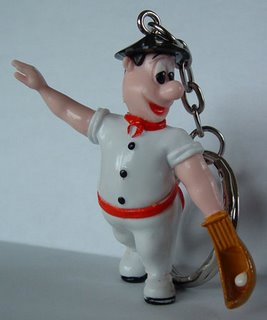
For the moment, it's mainly pictures. Like the map of the Basque region (above) which is mainly in N. Spain, but extends across the border into France.
And a reminder of that Basque game pilota. The following passage is filched from Wikipedia.
Pilota in
Basque and
Catalan, pelota in
Spanish, or pelote in
French (from
Latin pila) is a name for a variety of court
sports played with a
ball using one's hand, a
racket, a wooden bat (pala), or a basket
propulsor, against a
wall (frontón in Spanish, frontoi in Basque, frontó in
Catalan) or, more traditionally, with two teams face to face separated by a line on the ground or a net. Their roots can be traced to the Greek and other ancient cultures, but in Europe they all derive from
real tennis (see
Jeu de Paume). Today, pelota is widely played in several countries: in the
Basque Country and their neighbours; in
Valencia where it is considered the national sport; and in rural areas of Ireland (
Gaelic handball), Belgium, North of Italy, Mexico, Argentina and other American countries.
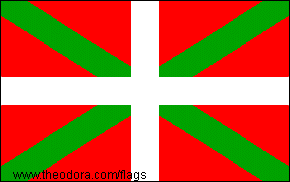
The Basque flag. OK, so we Brits are derivative. But our flag as well ?
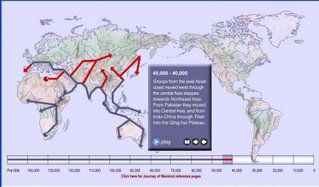
Screen capture from an excellent
website: a virtual global journey of man over the last 160,000 years
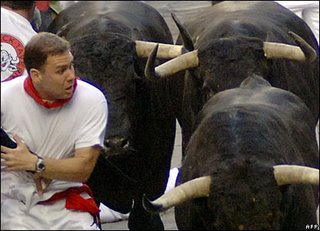
And do we have our Basque genes to thank for our reputation for fair play ?
The Pamplona Bull run
*
Final note: prompted in part by a comment received yesterday. This blog is staying well clear of politics on this particular topic: what you see here should be seen purely as a response to Stephen Oppenheimer's genetic tracing sudies. This blogger has no position on the matter of Basque separatism, except to say that he abhors violence and terrorism as a means of pursuing a political objective. He also despises attempts by States to deny their ethnic minorities a reasonable degree of political autonomy, especially to those having their own language and distinctive cultural identity. Sadly, what one man sees as reasonable may be seen by another as a dangerous concession.
 Quite the contrary- there's too much, but it's all dry textbook stuff. Whilst this headbanger is still afflicted with a daft mission to explain, that does not extend to boring the pants off the few brave souls who venture to this site. So you will be spared the details of mitochondrial DNA (mDNA) and Y chromosomal DNA, used to track maternal and paternal genes respectively back to prehistory - amazingly to our beginnings in East Africa, some 150,000 years ago. Suffice it to say that these forms are chosen because they stay aloof from the general mixing-up of genes that occurs each time a new individual comes into this world. His or her DNA pattern is said to be "highly conserved".
Quite the contrary- there's too much, but it's all dry textbook stuff. Whilst this headbanger is still afflicted with a daft mission to explain, that does not extend to boring the pants off the few brave souls who venture to this site. So you will be spared the details of mitochondrial DNA (mDNA) and Y chromosomal DNA, used to track maternal and paternal genes respectively back to prehistory - amazingly to our beginnings in East Africa, some 150,000 years ago. Suffice it to say that these forms are chosen because they stay aloof from the general mixing-up of genes that occurs each time a new individual comes into this world. His or her DNA pattern is said to be "highly conserved".




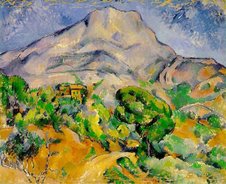

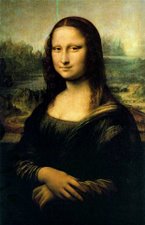
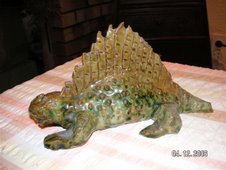


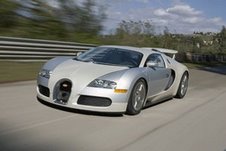
2 comments:
Thanks sweety pie
I agree with you entirely about the carnivores on Colin Randall's blog. I now ration myself to just one post a day. If they don't like what they hear, they have to stew on it !
Post a Comment